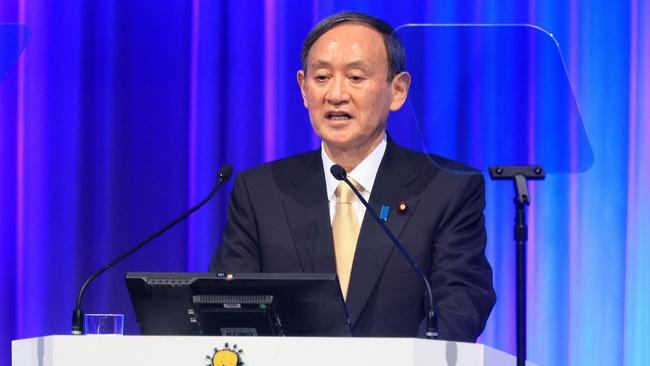Japan to end sale of coal-fired power stations overseas
The Biden administration had acted faster than many had expected to increase its leverage over other major emitters.

The Biden administration is expected to announce an ambitious 2030 carbon target within weeks as it pressures China, Australia and other emitters to further detail their paths to carbon neutrality.
And in the latest example of the “Biden effect” on climate policy-making, the Japanese government is considering ending its support of coal-fired power plants overseas.
Japanese Prime Minister Yoshihide Suga could announce an end to the export of coal power stations at his meeting early next month in Washington with President Joe Biden, according to the Tokyo-based newspaper, Nikkei.
Thom Woodroofe, an expert on US-China climate co-operation at the Asia Society Policy Institute, said the new administration had acted faster than many had expected to increase its leverage over other major emitters, including China, India and Japan. “The Americans are going hell for leather,” he said.
Mr Biden’s determination to assert leadership in the area — a sharp break from the Trump era — has turbocharged international climate policy making, as American allies and partners are nudged by the new administration towards increasingly bold positions.
Climate policy has become a rare area of co-operation between China and America, the world’s two biggest emitters, who produce almost 40 per cent of global greenhouse gases between them.
President Xi Jinping in October pledged that China would become carbon-neutral by 2060, a decade after commitments to decarbonise made by the US, Europe, the UK, Japan and South Korea. Mr Woodroofe said Mr Xi’s pledge was a “game changer”, but the subsequent lack of detail about its implementation in a five-year plan released by China this month had “dashed a lot of hopes”.
“The reality is that there is a huge gap between that vision and the reality,” he said at a briefing for a new policy paper written for Australian think tank China Matters on the US and China’s climate ambitions.
The new paper was released days after Mr Biden invited 40 world leaders, including Scott Morrison, to attend a climate summit on April 22-23.
In the statement announcing the summit, the Biden administration said it would reveal its 2030 target by the summit, as it attempts to increase its leverage with other major emitters, including China and Australia.
In the paper, Mr Woodroofe said many climate analysts expect the US target to be at least a 50 per cent reduction on 2005 levels — almost twice Australia’s current pledge for 2030. He warns Australia’s climate policy could become an irritant in its main security alliance if the Morrison government continues to resist setting a target year to be carbon-neutral. “If Washington makes clear that it sees greater Australian climate ambition as a matter of the highest political importance, Canberra will presumably face a genuine moment of introspection,” he writes.
The report notes Australia could also become vulnerable to taxes that both the US and Europe are considering imposing on carbon-intensive imports.
Advisers to Mr Xi have so far been unsuccessful in their attempts to get Mr Biden to commit to a separate leaders’ meeting for the two to discuss their climate change policies at the upcoming summit. China accounts for more than a quarter of global emissions, almost as much as the combined emissions by the next three biggest, the US, EU and India.
Mr Xi’s carbon-neutral pledge is a huge policy challenge for China’s still mostly coal-fired economy, but its state-controlled media has insisted it’s a top priority. The Xinhua newsagency this month called the plan “a major strategic decision” of the Communist Party’s central committee, linking the target to the Chinese leadership.
“The PRC (People’s Republic of China) wants to be seen as a leader in the global fight against climate change, especially in the eyes of its many partners among developing (and climate-vulnerable) countries,” writes Mr Woodroofe, who previously advised the Marshall Islands.
The paper says climate policy provides an area for co-operation between Australia and China, “once Canberra and Beijing are talking again”. It nominates partnerships on land-based carbon management and low-carbon steel manufacturing.
“Australia should also work with the US to apply smart strategic pressure on the (PRC) to move away from its support for carbon-intensive infrastructure in third countries throughthe (Belt and Road Initiative).”




To join the conversation, please log in. Don't have an account? Register
Join the conversation, you are commenting as Logout